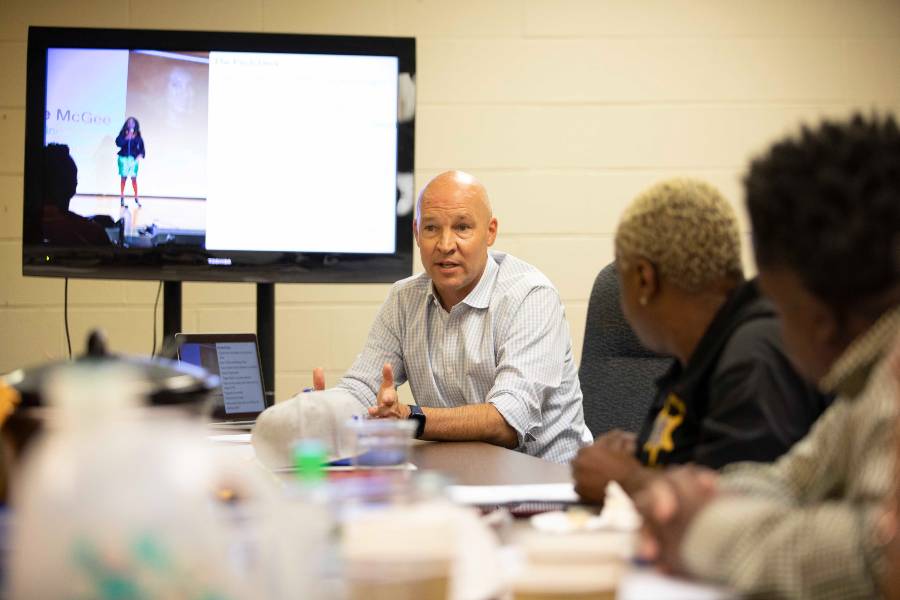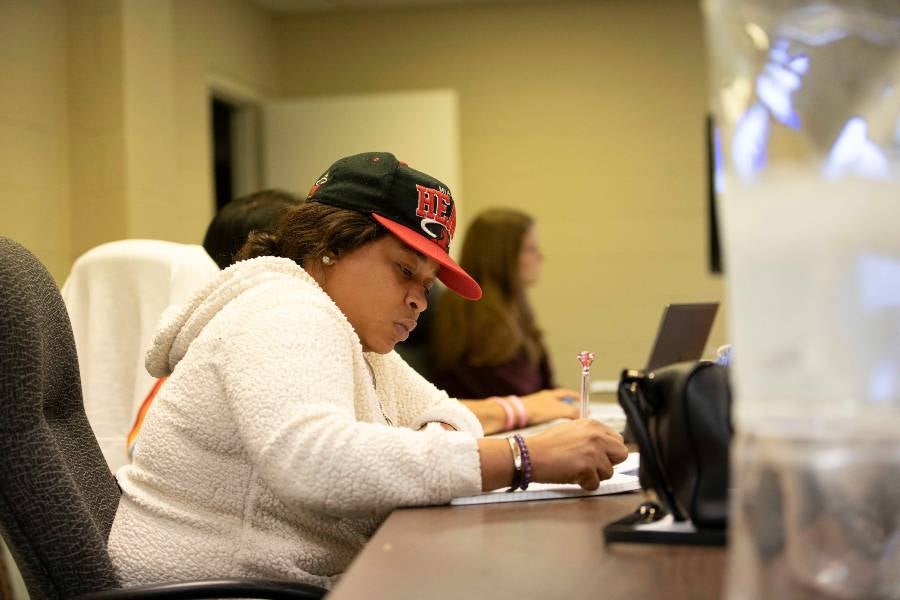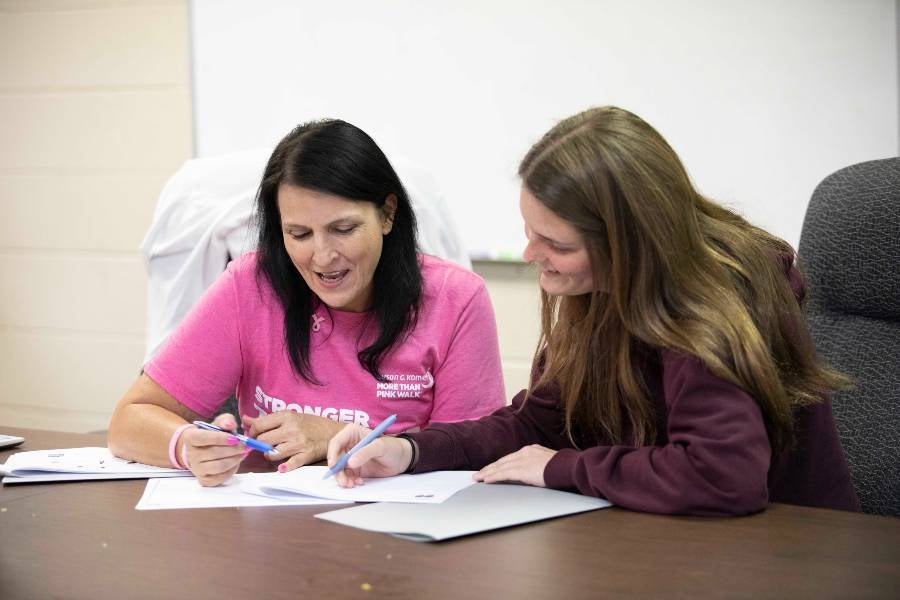Business As Mission brings new focus on local efforts during pandemic
Lipscomb business students are making a difference across the country and around the world.
Kim Chaudoin |

Inspiring students to develop their entrepreneurial ideas to make a difference in communities near and far is a hallmark of Lipscomb University’s College of Business.
In 2015 Lipscomb’s College of Business created the Center for Business as Mission to train the next generation of business leaders to develop a theological, social and practical framework for how to utilize the discipline of business to serve others and create impact. The Center for Business as Mission serves as a hub for the academic study of Business as Mission and for connecting students to local and global opportunities to engage and apply what is being learned in the classroom.
Since its launch, students in Introduction to Business and Social Entrepreneurship courses have started more than 200 micro businesses that have profited and given away more than $70,000. These profits have been used as startup capital for underestimated entrepreneurs to equip them to start their own microbusinesses around the globe. These businesses not only help aspiring entrepreneurs create income but also help create jobs. In some of these areas Lipscomb Business As Mission students have travelled on site to teach business skills.
Funds have supported Jamaican ventures to open a shoe shop, restaurant, tool shop and a retail art business among others. A textile business in Laos was able to purchase more merchandise from artisans. An entrepreneur in Uganda was able to continue construction on three apartments for rent. A cookie company in Brazil was founded. Profits have also been used to support various Middle Tennessee-based relief efforts, such as during the March 2020 tornadoes, and other programs.

In addition, the college also desired to serve the community by extending the conversation outside the institution as a convener of knowledge, experience and resources. So, three years ago the BAM323 conference was launched to connect those who have been practicing BAM to those who have a deep desire to learn.
In recent months, the COVID-19 pandemic has disrupted international efforts, however.
“While the pandemic has been a disrupter in nearly every aspect of our lives over the past 18 months or so, it has also created opportunities,” says Rob Touchstone, director of Business As Mission. “For the College of Business and our Business As Mission program, it has provided an opportunity to focus more fully on domestic initiatives, which has resulted in our students making an impact in our own community in significant ways.”
Since 2020, some of the new local BAM initiatives have included:
- Corner to Corner Nashville Pitch Competition. BAM partnered with Corner to Corner Nashville and their Academy initiative, a 10-week program that equips community members with the skills they need to plan, start and grow their own small business, to host a pitch competition as part of the 2021 BAM323 conference in September on the Lipscomb campus. The competition was hosted by bestselling author and BAM keynote speaker Jon Acuff and featured six entrepreneurs, judges and prize capital.
- Business Accelerator for Underestimated Entrepreneurs. The Center for BAM built upon its previous effort with the Hispanic Family Foundation to this time launch a free business course for what might best be called “underestimated” entrepreneurs. The course was offered in the Fall of 2021 to individuals who had faced a variety of challenges such as incarceration, limited opportunity, limited access to education, or limited finances. Touchstone and his BAM students taught entrepreneurship skills for 8 weeks and then hosted a pitch competition with startup capital prizes.
- BAM Consultation. BAM students have also served in various consulting roles domestically, providing insight and guidance to individuals who desired to start their own social enterprise. For example, students worked remotely with an aspiring entrepreneur who desired to open a gym in Pensacola, Florida as a missional endeavor in his community.

Touchstone says while international opportunities are slowly resuming, BAM will continue to grow its scope and impact both abroad and domestically. To foster this growth, the Center for Business As Mission is expanding its scope and has added an assistant director to the staff this fall, Cyntoia Long, a 2019 Lipscomb graduate, who has served as a BAM volunteer and has played a helpful role in launching the local BAM Business Accelerator.
“Cyntoia understands the magnitude and purpose of Business As Mission so well as an entrepreneur, nonprofit president, advocate for justice, and former student in one of my BAM courses,” says Touchstone. “The experience she has gained and network she has built will help us connect more broadly with the larger Nashville community and beyond as we seek to grow our reach and impact.”
Long is the founder and president of The Foundation for Justice, Freedom and Mercy (JFAM), a nonprofit organization that partners with businesses, organizations and other interested parties to provide training services related to sex trafficking and criminal justice involvement. She is also an award winning author, is on the Tennessee Bar Association faculty and an entrepreneur. She says she looks forward to expanding the scope of the program as well as sharing lessons learned in launching her own ventures.
“Our relationship with Christ should be the framework for every interaction we have with others. Business is no exception,” explains Long. “I look forward to exploring new approaches to connecting stewardship with entrepreneurship and making a meaningful impact on the lives of BAM students and the community at large.”
This spring BAM will offer another business accelerator for underestimated entrepreneurs and explore more ways to integrate business as mission into the domestic community, especially through partnerships with organizations addressing trafficking.